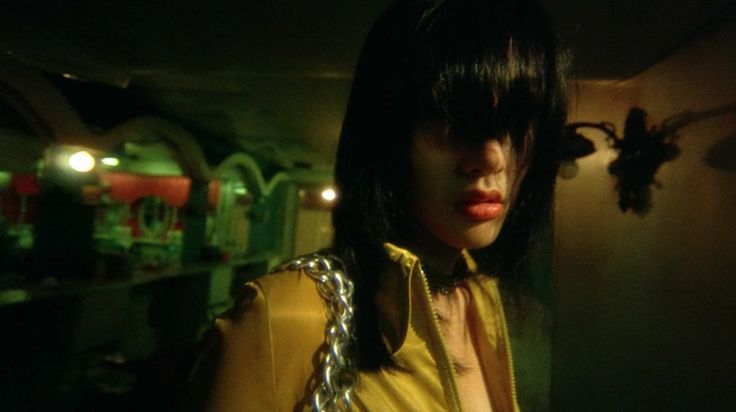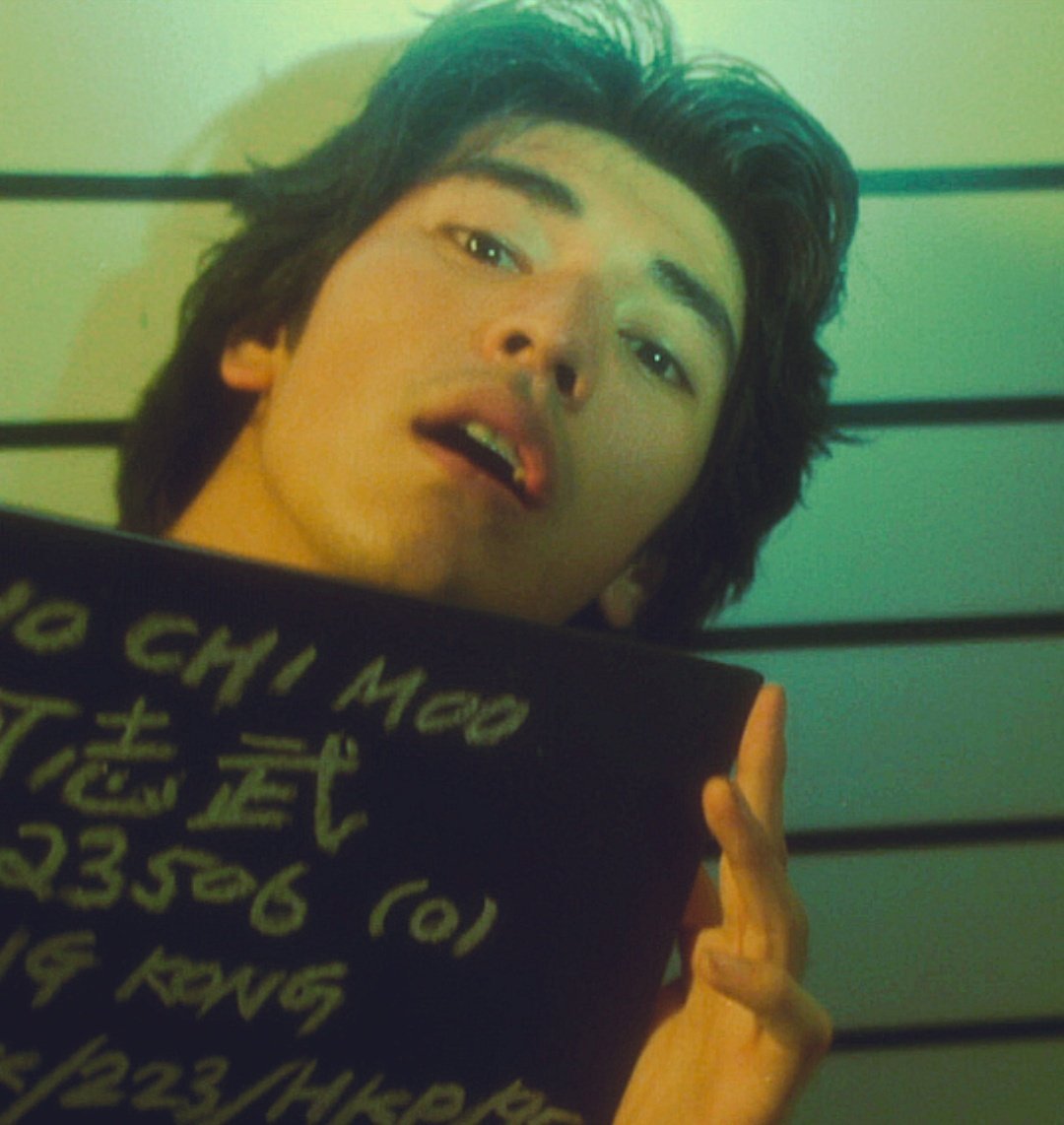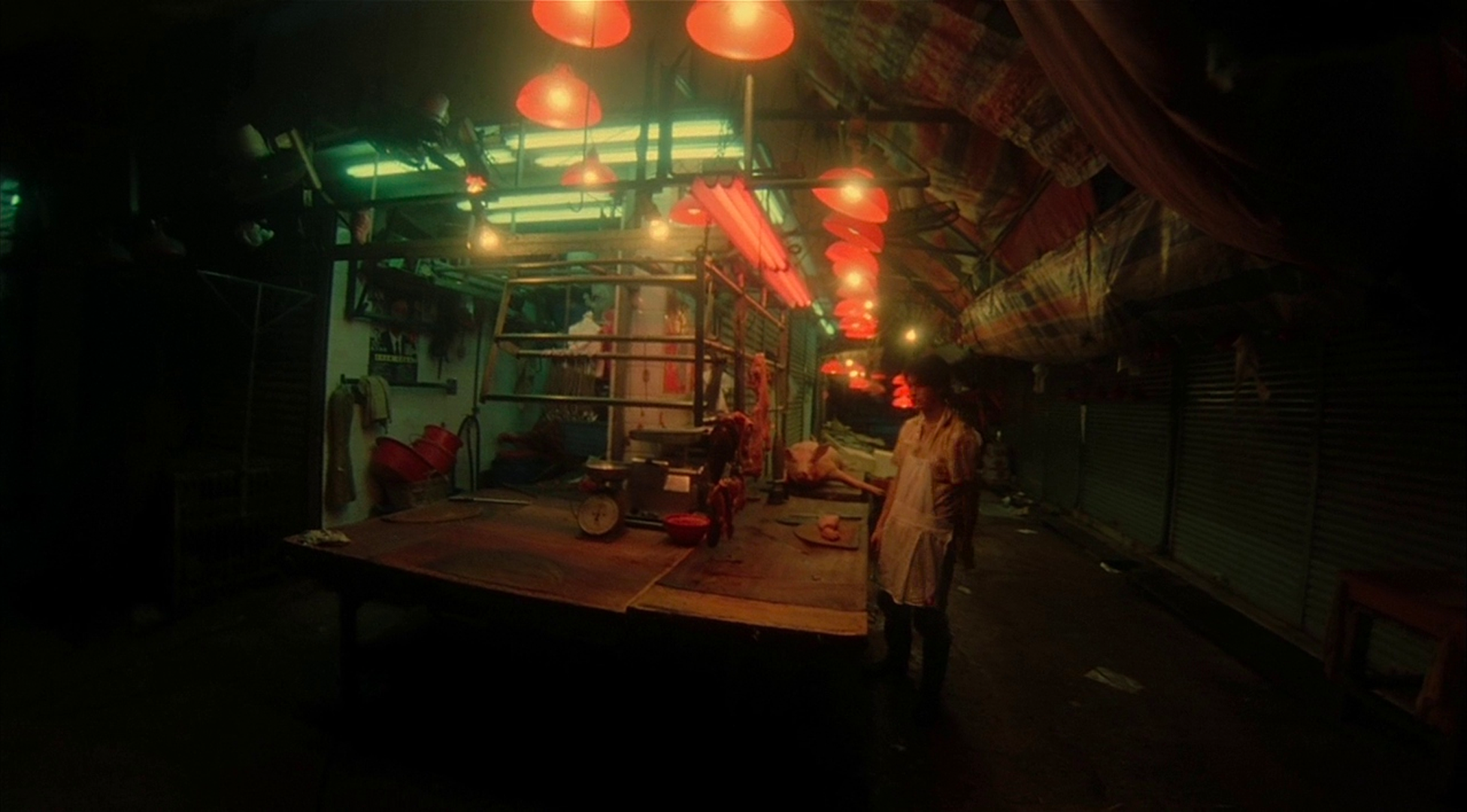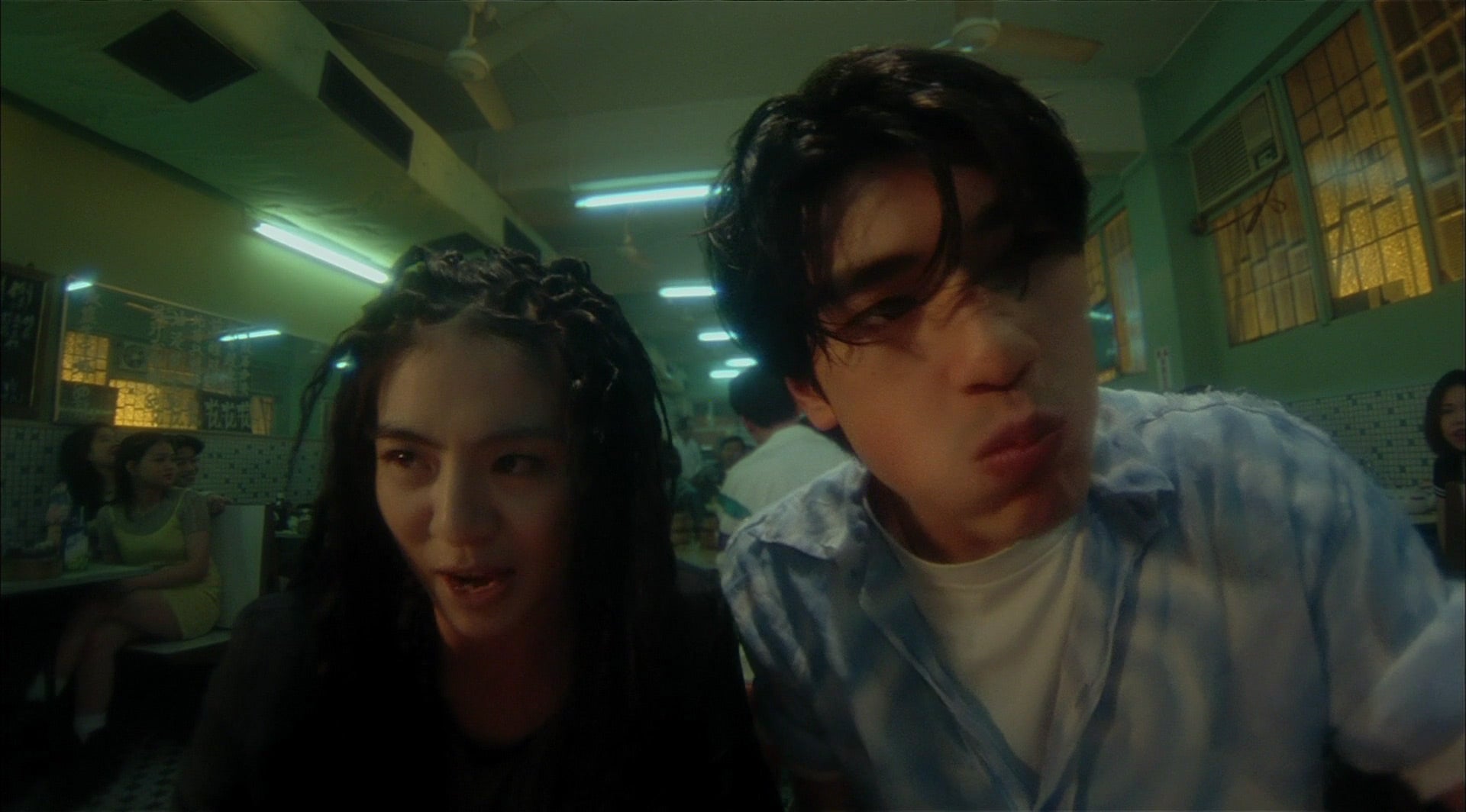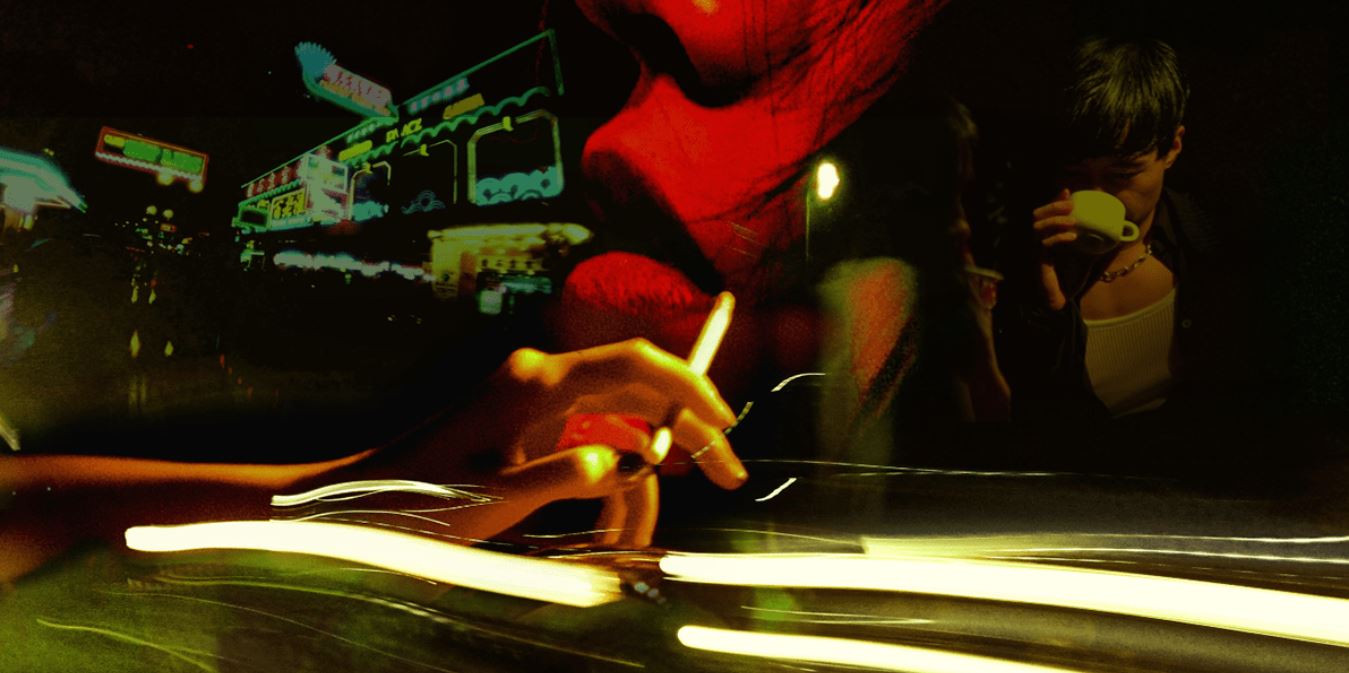
[FALLEN ANGELS REFERENCES]
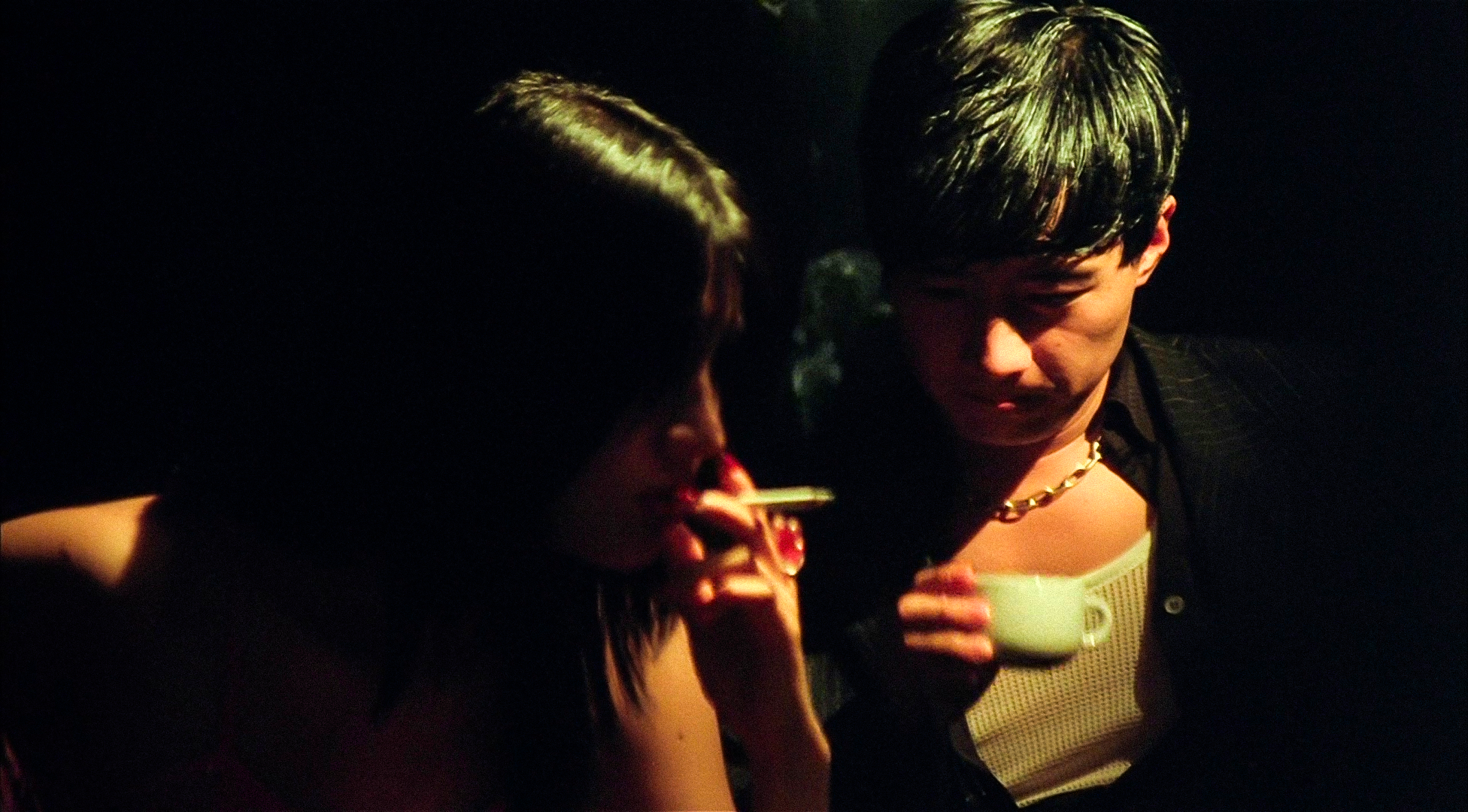
The solitude creeping into Hong Kong is undoubtedly the most striking character in Fallen Angels. Its phosphorescence amidst the darkness. Gunshots assaulting. Fearless runs amidst the fusion of an inert crowd. Fallen Angels is the tightrope chronicle of solitary souls embedded within the masses, carried away by the nocturnal mist of a city ablaze with a thousand lights. In this sprawling night that denies the day's existence, melancholy resurfaces, and emotional states are fleeting passages.
Released in 1995, Fallen Angels shares stylistic and narrative choices with Chungking Express. Indeed, it originated from a screenplay that was ultimately cut from Chungking Express and sometimes takes on the guise of gangster films like As Tears Go By was at the time.
But the heart of its message occupies an essential place in Wong Kar Wai's oeuvre, with its theme of unrequited love and alienation in a dizzying and animated world. Wong Kar Wai illuminates his film with an eccentricity that balances precariously between inevitable melancholy and endearing burlesque humor. Fallen Angels is a film close to experimentation, populated by almost indelible characters embarking on anonymous chance encounters. Once again, Wong Kar Wai focuses on young loners seeking connection in a bewildering world. They wander the city and engage in brief relationships, which seldom endure and often conclude in sadness.
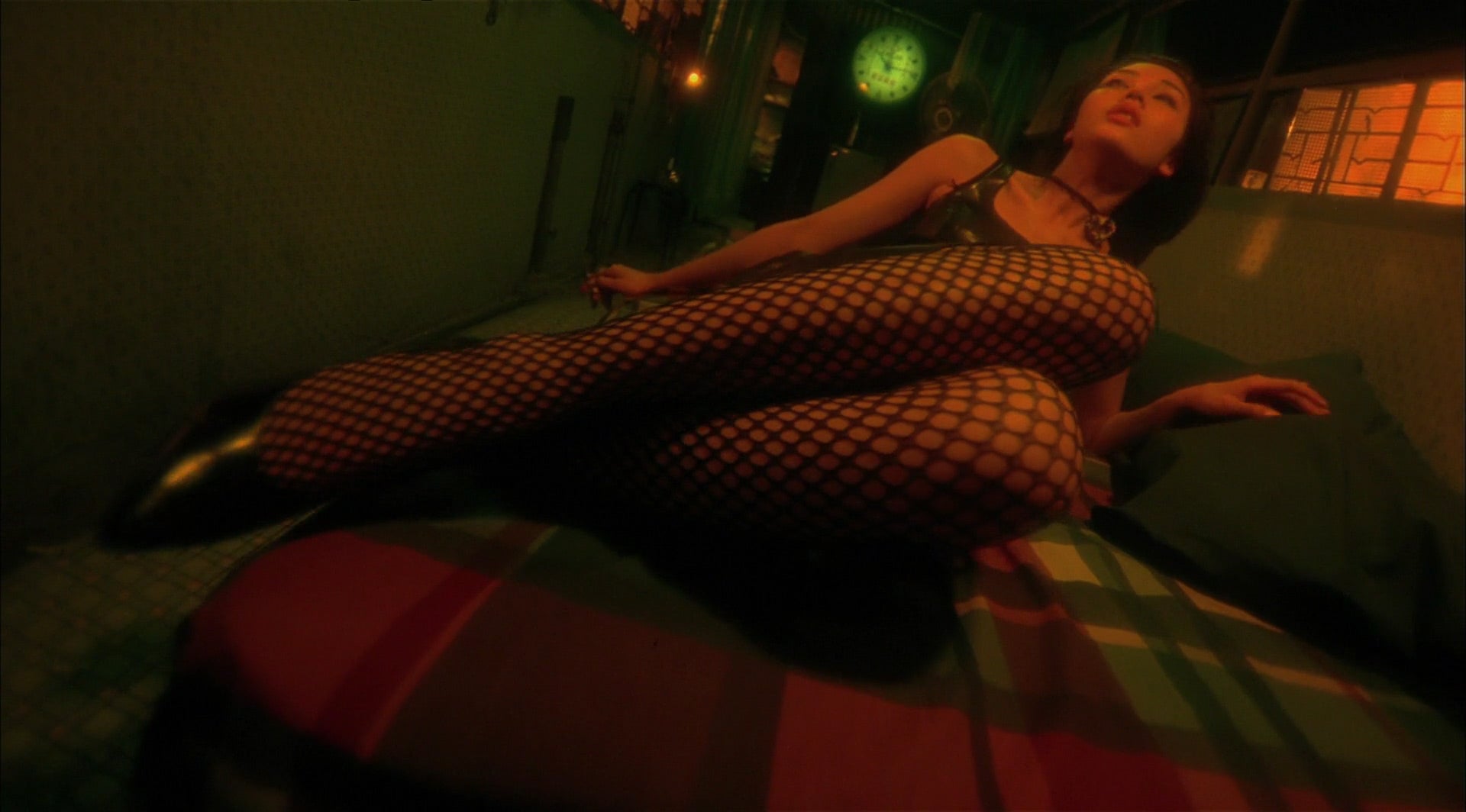
The urban wilderness it portrays continues to captivate and excite us endlessly.
Focusing mainly on enhancing the sense of incommunicability between individuals, Fallen Angels centers on what could be described as 'night birds' —
